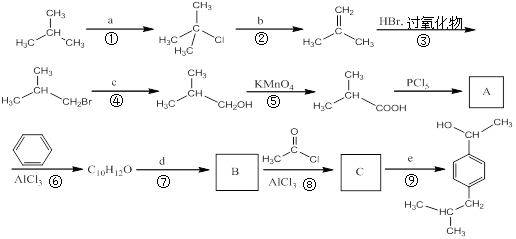阅读理解。
The biggest safety threat facing airlines today may not be a terrorist (恐布分子) with
a gun, but the man with the portable computer in business class. In the last 15 years,
pilots have reported well over 100 incidents that could have been caused by electromagnetic
(电磁) interference (干扰). The source of this interference remains unconfirmed, but
increasingly, experts are pointing the blame at portable electronic device such as portable
computers, radio and cassette players and mobile telephones.
RTCA, an organization which advises the aviation (航空) industry, has recommended that
all airlines ban (禁止) such devices from being used during "critical" stages of flight,
particularly take-off and landing. Some experts have gone further, calling for a total ban
during all flights. Currently, rules on using these devices are left up to individual
airlines. And although some airlines prohibit (禁止) passengers from using such equipment
during take-off and landing, most are reluctant to enforce a total ban, given that many
passengers want to work during flights.
The difficulty is prediction how electromagnetic fields might affect an aircraft's
computers. Experts know that portable device emit radiation which affects those wavelengths
which aircraft use for navigation and communication. But, because they have not been able
to reproduce these effects in a laboratory, they have no way of knowing whether the
interference might be dangerous or not.
The fact that aircraft may be vulnerable (易受损的) to interference raises the risk
that terrorists may use radio systems in order to damage navigation equipment. As worrying,
though, is the passenger who can't hear the instructions to turn off his radio because the
music is too loud.
1. The passage is mainly about _____. [ ]
A. effective safety measure of aircraft crashes
B. a possible cause for air flight accidents
C. the defects (缺点) of electronic devices
D. a new regulation for all airlines
2. What is said about the over 100 aircraft incidents in the past 15 years? [ ]
A. They may have taken place during take-off and landing.
B. They may have been caused by the damage to the radio systems.
C. They were suspected to have resulted from electromagnetic interference.
D. They were proved to have been caused by the passengers' portable computers.
3. Few airlines want to impose (强加) a total ban on their passengers using electronic
devices because _____. [ ]
A. they have other effective safety measures to fall back on
B. they don't believe there is such a danger as radio interference
C. the harmful effect of electromagnetic interference is yet to be proved
D. most passengers refuse to take a plane which bans the use of radio and cassette players
4. Why is it difficult to predict the possible effects of electromagnetic fields on an
airplane's computers? [ ]
A. Because experts lack adequate equipment to d such research.
B. Because it is extremely dangerous to conduct such research on an airplane.
C. Because it remains a mystery what wavelengths are liable to e interfered with.
D. Because research scientists have not been able to produce the same effects in labs.
5. It can be inferred from the passage that the author _____. [ ]
A. hasn't formed his own pinion on this problem
B. has overestimated the danger of electromagnetic interference
C. thinks it is unreasonable to exercise a total ban during flight
D. is in favor of prohibiting passengers' use of electronic devices completely
 )在常温常压下为无色可燃性气体,微溶于水,可溶于乙醇、乙醚等,主要存在于天然气、炼厂气和裂解气中,经物理分离而获得,亦可由正丁烷经异构化制得。它主要用于与异丁烯反应制异辛烷,作为汽油辛烷值的改进剂,也可用作冷冻剂。
)在常温常压下为无色可燃性气体,微溶于水,可溶于乙醇、乙醚等,主要存在于天然气、炼厂气和裂解气中,经物理分离而获得,亦可由正丁烷经异构化制得。它主要用于与异丁烯反应制异辛烷,作为汽油辛烷值的改进剂,也可用作冷冻剂。
 (X表示卤素;R表示烷基或氢原子)
(X表示卤素;R表示烷基或氢原子) 

 + NaOH
+ NaOH 
 +NaCl+H2O
+NaCl+H2O B:
B: C:
C:
 ,与苯通过取代反应生成
,与苯通过取代反应生成 。由于B能与
。由于B能与 发生与反应(II)相似的反应,这说明B分子中不再存在羰基。所以根据已知反应(I)可知,反应⑦是
发生与反应(II)相似的反应,这说明B分子中不再存在羰基。所以根据已知反应(I)可知,反应⑦是 在Zn/Hg与HCl作用下发生反应生成
在Zn/Hg与HCl作用下发生反应生成 ,则C的结构简式为
,则C的结构简式为 。在反应⑨中羰基变为羟基,因此该反应是羰基的加成反应,反应条件是H2在催化剂的作用下发生加成反应。
。在反应⑨中羰基变为羟基,因此该反应是羰基的加成反应,反应条件是H2在催化剂的作用下发生加成反应。